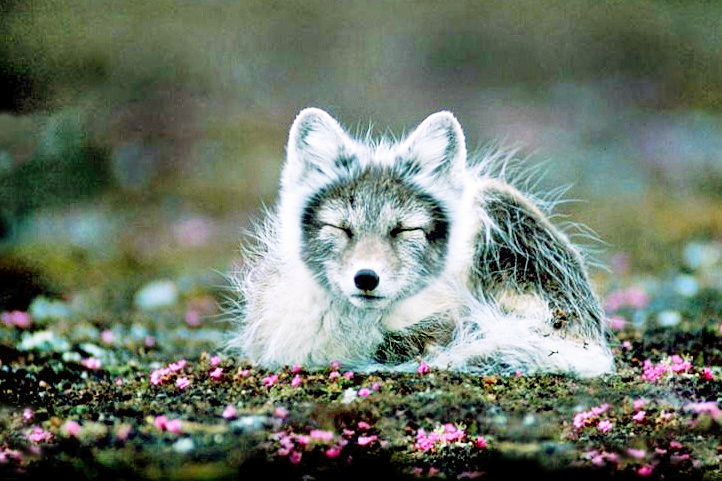(They live, literally, on opposite sides of the world...but it's STILL SO CUTE!)
Ever notice how much hubbub there is around the polar bear? Sure, it is tragic to lose an apex predator to global warming, and global warming is more likely than not (only) our problem, but what about those other cool animals that live up North? They have all had to adapt to a cold, unforgiving environment. If you thought that humans having to deal with malaria in Africa sucked, try living in a place where the sun doesn't shine for a month.

Also, look at the marketing potential for this pretty critter! BEAUTIFUL!
Amidst snow leopards, polar bears, and wolves, the Arctic Fox (Alopex lagopus) is often forgotten as a cold-weather predator. Given the rising population of foxes (which are almost all Reds - don't be fooled just because they're from Japan!), they should be getting more attention.
I know what you're thinking: "It's a fox and it's white. So what?"

It's not even white all the time.
"So what?" That's like saying "polar bears are just white bears." Arctic foxes have a number of other differences from normal foxes, such as body proportions (they're chubby) and large feet similar to those of snowshoe hares that keep them from sinking into the snow. They have extremely acute hearing that allows them to hear prey beneath the snow. These are foxes so well-adapted to the Arctic climate that they are the only land mammals native to Iceland.
Foxes are predators. Arctic Foxes will eat almost any mammals they can find, including snowshoe hares, as well as carrion and polar bear feces, but are especially fond of lemmings. They can eat dozens of lemmings every day. Disney did not need to kill off all the lemmings that they did; the foxes do a pretty good job. No fancy filmwork required.

NOM.
Like the polar bear, the Arctic Fox is slowly disappearing. Besides global warming affecting its habitat, the larger Red Fox has taken over some of its territory (thanks largely to the decreased wolf population). They are also all but gone from areas in which humans have settled. One subpopulation was nearly eradicated by a dog tick. Blah, blah, blah, humans suck and wiped out a perfectly good recessive trait. At least the endangered-ness is restricted to only a few select populations.

No comments:
Post a Comment